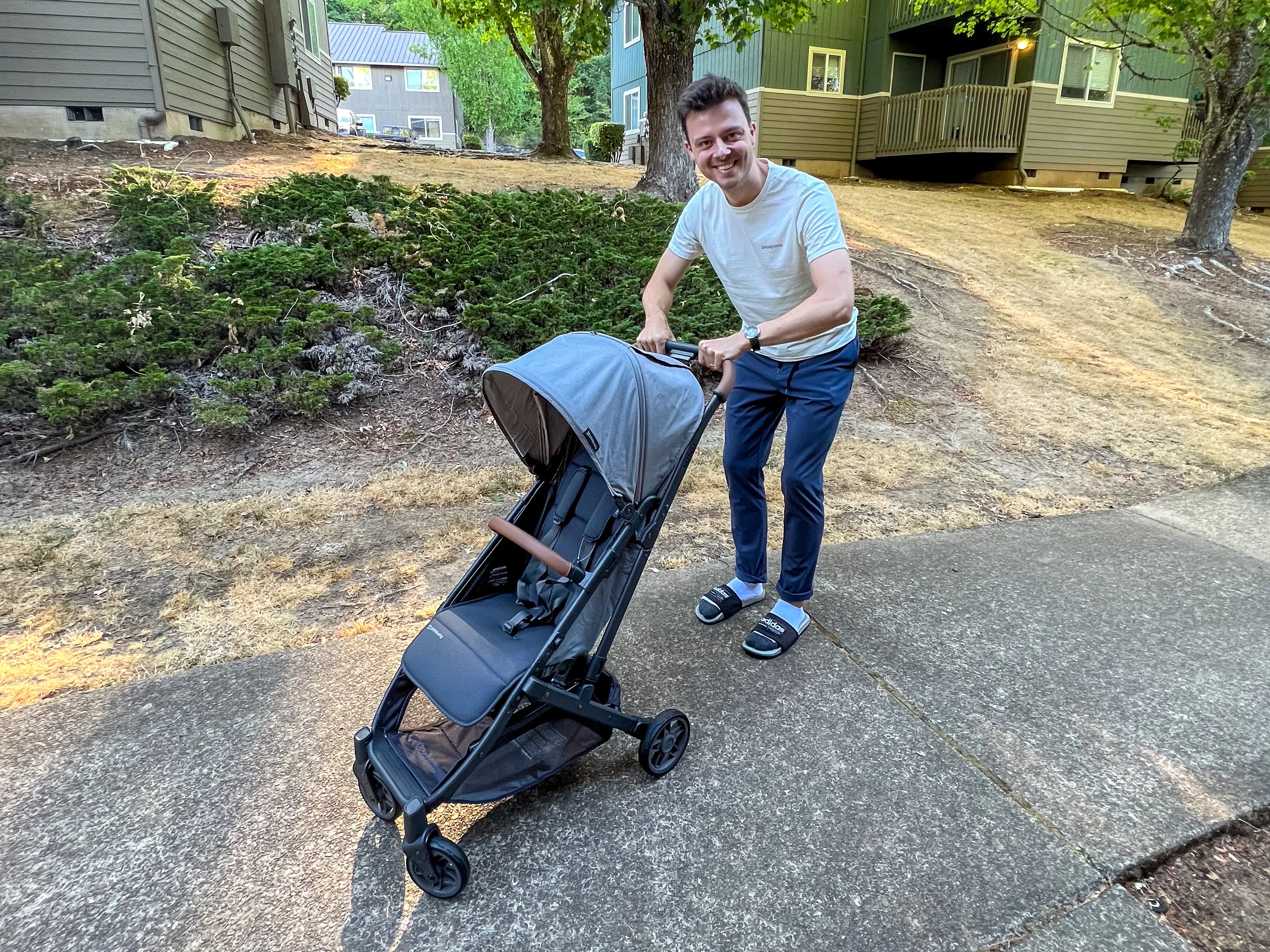Minimal Baby Gear
Some considerations to welcome your baby home in peace.
January 26, 2024

Legend:
- ⭐️ Must Have Before Going Home From The Hospital
- 🔥 Personal Favorite
- ❓ Optional
Brand recommendations are in parenthesis.
The Juveline Products Manufacturers Association (jpma) is a good label to look out for when shopping for safe baby gear.
Consider using Yuka to scan cosmetics (and processed foods). It will surface hazardous or risky ingredients with explanations.
Amazon lets your create a baby registry. Your friends and family can contirbute to your registry. You also get 15% discount on all registry items after a bit.
It might be part of your welcome-baby-home process to choose and purchase things for them, according to your preferences. Tell your closed ones how to best contribute. (You will get unwanted stuff.)
You can find a TON of secondhand items (e.g., Marketplace, Goodwill, or friends/colleagues) if that’s your gig.
Using an app to track sleep, diapers, tummy time is highly recommended! We use Huckleberry but there’s a lot of other options.
Care
We recommended attending all birth classes and completing an Infant First Aid/CPR/AED course with the American Red Cross.
Diapers
We recommend unscented neutral diapers and wipes. We had the best experience (blowouts, irritation) with the Pampers Pure Protection ones. We tried other brands (cheaper and more expensive ones, “sustainable” ones) but they were less satisfactory.
- ⭐️ Diapers (Pampers Pure Protection)
- ⭐️ Wipes (Pampers Aqua Pure)
- 🔥 Changing Pad (Hatch Baby Grow)
- 🔥 Diaper Pail (Ubbi Steel)
- Zinc Oxide Rash Cream (Mustela 10% or Aquaphor 40%)
- Diaper Bag (Ruvalino)
The recommened diaper pail is great at keeping odors in, and accomodates your own trash bags.
You can in theory use any bags as a diaper bag, but we like the many compartments of the Ruvalino.
Wash
Your newborn does not need soap or bath in the early weeks. Simply wiping them clean with water will protect their sensitive skin.
We do a quick care routine every morning after waking: diaper change, water clean (focus on skin folds), saline nasal flush, vitamin D.
- Bath Tub (Fischer-Price)
- Shampoo and shower gel (Mustela for Very Sensitive Skin)
- Moisturizer (Mustela for Very Sensitive Skin)
- Hooded Towels
- 🔥 Washcloths
Health
It’s safer for a baby to receive a vitamin D supplement than to have their body (not face) exposed to the sun. The vitamin D recommended intake will increase with age.
- ⭐️ Vitamin D 400 IU
- Baby Rectal Thermometer (Vicks or Frida Baby)
- 🔥 Nasal Aspirator (Frida Baby Snotsucker)
- 🔥 Saline Solution (Frida Baby)
- Nail Trimmer (Haakaa or Frida Baby)
- Gas and Colic Reliever (Friday Baby Windi)
- Medicine Dispenser Pacifier (Frida Baby)
- Baby Paracetamol/Acetaminophen
Sleep
It is recommended that your baby sleeps for at least the first six months in your bedroom. A bedside bassinet makes it easier to check on them. They will outgrow them around the 5-6 months mark.
We put the crib as optional because having the mattress on the floor can be beneficial for a growing baby (check the Montessori method) but it’s not always safe to do.
Opt for low-intensity red night lights to protect your circadian rythm (it is less prone to affect your ipRGCs). Consider a dimmable red light bulb if you breast feed at night.
- Sleepsack Swaddle (HALO)
- Sleepsack (HALO)
- Pacifiers (Philips Avent)
- ⭐️ Bedside Bassinet / Co-Sleeper (Arm’s Reach)
- Red Night Lights
- Mattress and Cover (Moonlight Slumber)
- ❓ Crib (Delta Children)
- Offline Baby Monitor (Eufy)
Clothes
Your baby should always wear one more layer than you. Note than depending on the season, you might consider short or long-sleeve, footed or not, and thickness of the material.
We find clothes that open in the front (kimono-style) much easier to handle. Another time-saving tip is to opt for zippers (in particular at night). Natural fibers (like cotton) will be more comfortable and less irritating than synthetic ones.
Look for the Glocal Organic Textiles Standard (GOTS) label if you can afford it.
- ⭐️ Kimono Bodysuits (Honest Baby, Simple Joys by Carter’s)
- ⭐️ One-Piece Zipped Sleeper Jumpsuits/PJs (Honest Baby)
- Cap/Beanie Hat
- Pants (Honest Baby)
- Sweatshirts (Honest Baby)
- Socks (Honest Baby)
- Dresser (Delta Children)
The dresser is to organize clothes and other baby items.
Play
As soon as your baby’s belly button is healed, you want to maximize tummy time. It helps develop muscles, imrpove digestion, breathing, and avoid flat head.
We highly recommend Lovevery. They produce high-quality, age-approriate toys. These toys will grow with your baby.
It is also recommended to read to your baby early, at leats 10 minutes per day. You can never have enough books.
- Play Mats (Toki Mats, House of Noa)
- Play Gym (Lovevery)
- 🔥 Age-appropriate Play Essentials (Lovevery)
- 🔥 Books (Little Feminist, Scholastic)
- Shelf (Lovevery)
Food
This section covers breastfeeding/breastmilk only for now.
Make sure to read the CDC’s human milk storage guidelines.
Silicone and glass are safer for your baby than plastic (at least until they can hold glass items and break them).
- 🔥 Nursing Pillow (Blessed Nest)
- 🔥 Glass Natural Baby Bottles with Natural Response Nipples (Philips Avent)
- Electric Breast Pump (Spectra, Medela)
- Silicone Breast Pump (Haakaa)
- Silicone Milk Collector (Haakaa)
- Breastmilk Storage Bags (Lansinoh)
- Comfortable Seating (Delta Children)
Transport
The The Stroller Workshop is a great YouTube channel for stroller reviews.
Make sure the baby carrier is ergonomic for both baby and you.
- Baby Carrier (Ergobaby)
- ⭐️ Infant Car Seat (Clek, Uppababy)
- Stroller (Uppababy)
- Stroller Bassinet (Uppababy)
- Rain Cover (Uppababy)